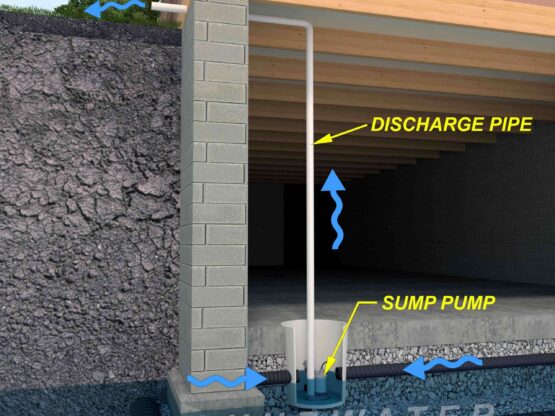How to Handle a Sump Pump Failure in Marietta’s Rainy Season
Sump pump failure during Marietta's rainy season can be a homeowner's worst nightmare. When heavy rainfalls and storms hit, a functioning sump pump is crucial in preventing basement flooding and water damage. However, in the event of a sump pump failure, there are steps that homeowners can take to minimize the damage and get their sump pump back up and running. This concise guide will cover the necessary steps and precautions to handle sump pump failure during Marietta's rainy season, ensuring that your home stays protected and dry. Don't let a sump pump failure ruin your rainy season – be prepared and informed with these helpful tips.

Understanding Sump Pump Failure
Sump pumps are a crucial component to any home in Marietta, especially during the rainy season. They are designed to keep your basement and crawl space dry by pumping out excess water that collects from rain or groundwater. However, like any mechanical system, sump pumps can fail. And in Marietta's rainy season, a sump pump failure can quickly become a nightmare.
Types of Sump Pump Failures
There are a few common types of sump pump failures that homeowners in Marietta may encounter. The first is a power outage. If your sump pump relies on electricity to function and the power goes out, your basement can quickly flood. The second type of failure is a clogged or jammed sump pump. This can happen if debris or dirt gets into the pump, preventing it from functioning properly. The third type of failure is a faulty float switch. The float switch is responsible for turning the pump on and off, and if it malfunctions, your sump pump will not turn on when needed.
Signs of Sump Pump Failure
It's essential for homeowners in Marietta to know the signs of sump pump failure, so they can address the issue before it becomes a major problem. The first sign is excessive noise. If your sump pump is making unusual sounds, it could be a sign that something is not working correctly. The second sign is a constantly running pump. This could indicate that there is an issue with the float switch or a leak in the sump pump. The third and most obvious sign is water in your basement or crawl space. If you notice water collecting, it's a clear indication that your sump pump is not working correctly.
What to Do in Case of Sump Pump Failure
If you have a sump pump failure in Marietta's rainy season, it's essential to act quickly to minimize damage and prevent further issues. The first step is to check the power supply. Make sure the sump pump is plugged in and that the outlet is not tripped. If the power is on and the pump is not running, there may be a mechanical issue that requires professional repair. The second step is to check the float switch. If it's stuck, try gently moving it to see if the pump turns on. If it does not, it's best to call a professional.
Preventing Sump Pump Failure
The best way to handle a sump pump failure is to prevent it from happening in the first place. Regular maintenance and inspections can help ensure your sump pump is in working condition. It's also a good idea to invest in a battery backup system, so your sump pump will continue to function in the event of a power outage. Additionally, keeping the area around the sump pump clean and free of debris can help prevent clogging.
In conclusion, a sump pump failure in Marietta's rainy season can be a homeowner's worst nightmare. However, by understanding the types of failures, recognizing the signs, and knowing what to do in case of an issue, you can effectively handle and prevent sump pump failure. Remember to always act quickly and seek professional help if needed to minimize damage and keep your home safe and dry.
